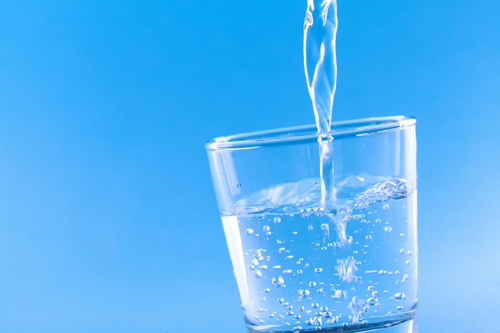Many of the substances present in your drinking water can be harmless in low levels, like minerals and naturally-occurring substances. However, some are incredibly dangerous and should be immediately removed from your drinking water. Per- and polyfluoroalkyl substances (PFAS) are man-made chemicals that cannot be found in nature and that have only been in existence in the United States since the 1940s. These chemicals do not break down and can accumulate in the environment and our bodies over time. What do you need to know about PFAS in your drinking water?
What are PFAS?
As mentioned above, PFOA, PFOS and PFAS are all man-made chemicals that are manufactured and used in many different industries. There is evidence that they can be harmful for human consumption and health, which is why many people are now concerned about their presence in drinking water.
Some of the places that PFAS can be found include:
- Food: Food can be packaged in materials that contain PFAS, processed on equipment that contains PFAS or grown in soil and water that was contaminated with PFAS
- Workplaces: Many workplaces, particularly industrial ones, use PFAS as part of the process, including electronics manufacturing companies, oil recovery and chrome plating
- Drinking Water: PFAS can enter drinking water due to a local manufacturing or industrial facility getting them into the water
- Commercial Products: Products that you use around the house every day might contain PFAS, including nonstick products, water-repellent fabric, cleaning products, waxes and paints
Because they are potentially dangerous, some have not been manufactured or used in the United States for years. However, they can be imported into the country in the form of many different household goods like apparel, carpet, coatings, paper, rubber and plastics.
Why Are PFAS Dangerous?
The primary reason why PFAS are so dangerous is the fact that some of them can accumulate and last in the human body for long periods of time. PFOA and PFOS are two of the most common types of PFAS found in the environment, and studies have found that they can lead to developmental damage, reproductive damage, liver problems, kidney problems and immune system problems in animals. Because they can accumulate over time, many consumers are growing more interested in limiting their exposure to PFAS whenever possible.
PFAS has also been linked to conditions in humans outside of the animal studies mentioned above, including high cholesterol, low infant birth weights, poor immune systems, cancer and thyroid hormone disruption. As research continues on the impacts, researchers think that new correlations may be uncovered.
How Do You Know if There is Arsenic in Your Water?
The only way to know is by having water testing completed. Arsenic will not discolor your water, have an aftertaste or lend your water a distinct smell like other compounds, so you must use professional water testing. The standard for arsenic set by the Environmental Protection Agency is 10 micrograms per liter, but consuming water for many years just under that level could still lead to experience health effects. The goal for arsenic in drinking water is 0, which can be achieved through water filtration using a professional system like those offered through Atlantic Blue Water Center.

Are There PFAS in Your Drinking Water?
The Environmental Protection Agency (EPA) has established health advisories for PFOA and PFOS and set limits for the presence of them in drinking water systems throughout the country. A health advisory is one way that the EPA can highlight concerning contaminants that should be tested, but they are unenforceable, which means that you should have your water tested whether you have a private well or use municipal water. To protect you against negative cumulative health effects, the EPA health advisory level is 70 parts per trillion. If there are both PFOA and PFOS present in the drinking water, both of them combined should sit below the 70 parts per trillion benchmark. Elevated levels could lead to health problems when consumed over the course of your life.
What Should You Do to Protect Your Drinking Water?
- Determine if there are PFAS in your drinking water by testing it. Atlantic Blue Water Center can help with assessing the existing levels present in your water and determining the best method of treatment. Until you know what other compounds might be present, it is difficult to know the right filtration method or combination of filtration methods to ensure that your family is consuming safe healthy water.
- Limit your exposure to PFAS in your daily environment. This can be challenging due to how common they are, but you should remember that the issue is the cumulative amount you take in and not just one-time exposure. Taking steps to limit PFAS in your daily life can make a huge difference. Check to see if items you are purchasing contain PFAS and consider investing in alternatives that do not contain PFOS or PFOA. This is very important when purchasing items that are imported and might be from a country that still allows for PFAS to be manufactured and used in products. Nonstick cookware, products that contain Teflon, stain and water-resistant products, personal care products and more contain PFAS, so be prepared for a learning curve as you adjust your lifestyle to avoid these compounds.
- Invest in a water filtration solution from Atlantic Blue Water Center. We offer both water treatment and water filtration solutions that can ensure your water remains clean, safe and healthy to consume. With one of our systems, you can have the peace of mind that there are not dangerous compounds present in your water that might lead to damaging health effects for you or your family.
- Beyond watching your consumption, you can also help to reduce PFAS by encouraging your state and local governments to pass regulations regarding them. For example, in 2018, Washington state legislature passed two laws that ban PFAS in food packaging and firefighting foam. Without the work of residents and citizens who wanted to get rid of PFAS, this would not have occurred. Look for ways that you can keep your family and community safe.
Make Sure That Your Home Water Supply Is Safe to Drink with Atlantic Blue Water Center
We provide water treatment and water softening solutions for homeowners that want a cleaner water supply and water that is free from hazardous carcinogens that can contribute to increased cancer risk. We’re also focused on providing additional education on water treatment, water quality, and issues associated with water contaminants. Call us at (410) 751-9200 to schedule your in-home water testing appointment today.
